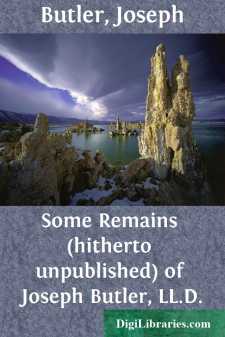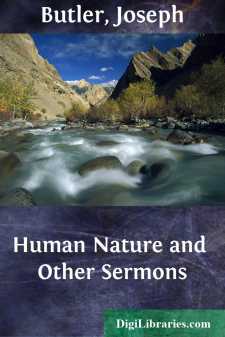Categories
- Antiques & Collectibles 13
- Architecture 36
- Art 48
- Bibles 22
- Biography & Autobiography 815
- Body, Mind & Spirit 144
- Business & Economics 28
- Children's Books 18
- Children's Fiction 14
- Computers 4
- Cooking 94
- Crafts & Hobbies 4
- Drama 346
- Education 58
- Family & Relationships 59
- Fiction 11829
- Games 19
- Gardening 17
- Health & Fitness 34
- History 1378
- House & Home 1
- Humor 147
- Juvenile Fiction 1873
- Juvenile Nonfiction 202
- Language Arts & Disciplines 89
- Law 16
- Literary Collections 686
- Literary Criticism 179
- Mathematics 13
- Medical 41
- Music 40
- Nature 179
- Non-Classifiable 1768
- Performing Arts 7
- Periodicals 1453
- Philosophy 65
- Photography 2
- Poetry 896
- Political Science 203
- Psychology 44
- Reference 154
- Religion 515
- Science 126
- Self-Help 85
- Social Science 82
- Sports & Recreation 34
- Study Aids 3
- Technology & Engineering 59
- Transportation 23
- Travel 463
- True Crime 29
Our website is made possible by displaying online advertisements to our visitors.
Please consider supporting us by disabling your ad blocker.
Some Remains (hitherto unpublished) of Joseph Butler, LL.D.
by: Joseph Butler
Categories:
Description:
Excerpt
PREFACE.
It has long been a subject of regret that we should have so few remains of so great a writer as the author of the “Analogy,” not only the greatest thinker of his day, but one almost equally remarkable for his personal religion and amiability.
The few fragments and letters which remain unpublished, derive from this circumstance a value wholly incommensurate with their extent, though, as to the few I have been able to recover, they seem to me worthy of notice even for their own sake.
There can, I suppose, be no doubt but that many letters on subjects connected with their common pursuit,—the defence of religion by rational arguments,—must have passed between Dr. Clarke and the “Gentleman in Gloucestershire,” even up to the time of the former’s decease; and the specimen I am now able to exhibit certainly excites a wish that one could recover more of a series which it is most likely that Dr. Clarke at least carefully preserved. The three letters now printed were all addressed to Dr. Clarke; the first and last, though little known, were published many years ago in the European Magazine.
The second and third Fragments are printed as they were written, having apparently been noted down from time to time as the ideas occurred to their author; thus at the end of the first paragraph of the third Fragment, the word “direction” was originally written “advice,” but was subsequently altered in a different ink, being the same with that in which the sentences immediately following were written. I have not thought myself at liberty to make any attempt to reduce these Fragments to better consistency; indeed, their present disordered state seems to me rather to add to their interest, as showing the mode in which the stones were gathered for building up such works as the “Analogy” and the “Sermons.” It will be observed that I have found a difficulty in reading the last part of the third Fragment, and I am by no means sure that I have quite hit the sense intended; I should like it to apply either to the Cross set up at Bristol, or to the famous Charge delivered at Durham.
I have added a cotemporary notice of the buildings at Bristol, and an anecdote showing how they were thought of, as well as a statement, made after the Bishop’s death, of his proceedings with regard to the church, which is now St. George’s, near Bristol, in order to establish the fact of the separation of the property there mentioned from the bulk of his estate;—showing his desire to do something for the benefit of the people of Kingswood, a district the moral degradation of which had already attracted the attention of Whitefield and Wesley.
The following extract has been kindly communicated to me from the Diary of Dr. Thomas Wilson, the son of the great Bishop of Sodor and Man; and I print it here more especially to invite the attention of all who take an interest in these things to the fact, that a copy may have been made for the King of the sermon there mentioned, and may possibly even yet be in existence somewhere; if so, it cannot but be worth the trouble of recovery and publication.
1737, December, Friday, 23rd. “The Master [i.e. Sir Joseph Jekyll, Master of the Rolls] told me that the King desired that Dr. Butler, Clerk of the Closet to the late Queen, might preach before him in the Princess Amelia’s apartments. He preached upon the subject of being bettered by afflictions, which affected His Majesty so much that he desired the sermon, and assured him that he would do something very good for him. The Master desired that it might be known publicly, it was told him by the Bishop of Oxford [Seeker]. The Master seemed mightily pleased, and was in hopes it would be of great service to the public as well as his private family, which will be a pleasure to every body, and make even the death of Her Majesty (so great a seeming loss) of advantage to the nation.”
I have been mainly induced to publish these Remains by the pleasure with which some copies I had given away privately have been received, and I confess that the fruit I should be most gratified to see, would be the recovery of some longer work, not less worthy of its Author’s reputation....



